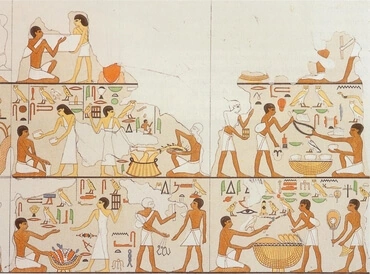1
Přičině k ústům svým troubu, rci: Aj, letí jako orlice na dům Hospodinův, proto že přestoupili smlouvu mou, a proti zákonu mému převráceně činili.
2
Budouť sic volati: Bože můj, znáť tebe Izrael,
3
Ale opustilť jest Izrael dobré, nepřítel jej stihati bude.
4
Oniť ustanovují krále, ale beze mne; knížata vyzdvihují, k nimž já se neznám; z stříbra i z zlata svého činí sobě modly k svému zkažení.
5
Opustíť je tele tvé, ó Samaří, když se zažhne prchlivost má na ně. Až dokudž nebudou moci ostříhati nevinnosti?
6
Však i ono jest od Izraele, řemeslník je udělal, a neníť Bohem; nebo drtiny budou z toho telete Samařského.
7
Poněvadž větru rozsívají, takéť vichřici žíti budou; ani stébla žádného míti nebudou; úroda nevydá mouky, a by pak i vydala, cizozemci to sehltí.
8
Sehlcen bude Izrael, tudíž budou mezi pohany jako nádoba, v níž není žádné líbosti.
9
Proto že se oni utíkají k Assurovi, oslu divokému, kterýž jest toliko sám svůj, a že Efraim sobě najímá milovníky,
10
A že posílali dary mezi pohany: protož tudíž je zberu i já, anobrž jižť jsou okusili něčeho pro břímě krále knížat.
11
Nebo vzdělal Efraim mnoho oltářů k hřešení, máť oltáře k hřešení.
12
Vypsal jsem jemu znamenité věci v zákoně svém, ale neváží sobě rovně jako cizí věci.
13
Z obětí darů mých obětují maso a jedí, Hospodin neoblibuje jich. Jižť zpomene na nepravost jejich, a vyhledávati bude hříchy jejich, že se oni do Egypta navracují,
14
A že se zapomenul Izrael na Učinitele svého, a nastavěl chrámů, a Juda vzdělal mnoho měst hrazených. Protož pošli oheň na města jeho, a zžíře paláce jeho.







